Syrian, Russian fighter jets stage joint air patrol over occupied Golan Heights
Russian and Syrian fighter jets have conducted a joint aerial patrol over the Israeli-occupied Golan Heights, and participated in real combat conditions against mock enemy warplanes and unmanned military aircraft.
Syria’s official news agency SANA said the mission involved Russia’s Sukhoi Su-24, Su-34 and Su-35 twin-engine fighter bombers, besides six Mikoyan-Gurevich MiG-23 and MiG-29 aircraft belonging to the Syrian Air Force.
Back on January 24, Syria and Russia held joint aerial patrols along Syria’s borders, including over the Golan Heights.
According to a Russian Defense Ministry statement cited by Interfax news agency at the time, the patrol involved fighter, fighter bombers and early warning and control aircraft.
Russia launched its airstrikes against Takfiri terrorists in Syria at the request of the Damascus government.
Late last month, Russia dispatched attack helicopters and fighter jets to its base in Syria’s northeastern province of Hasakah upon a request from the Damascus government.
The decision came only days after Russian Foreign Minister Sergei Lavrov reaffirmed Moscow’s determination to support Syria’s sovereignty and territorial integrity.
Lebanon’s Arabic-language al-Mayadeen television news network said then that Russia had sent reinforcements to its airbase near the Kurdish-majority city of Qamishli as part of a military buildup.
In 1967, Israel waged a full-scale war against Arab territories, during which it occupied a large swathe of Golan and annexed it four years later – a move never recognized by the international community.
In 1973, another war broke out and a year later a UN-brokered ceasefire came into force, according to which Tel Aviv and Damascus agreed to create a buffer zone in Golan. However, Israel has over the past several decades built dozens of illegal settlements in Golan in defiance of international calls for the regime to stop its illegal construction activities.
In a unilateral move rejected by the international community in 2019, former US president Donald Trump signed a decree recognizing Israeli “sovereignty” over Golan.
Nevertheless, Syria has repeatedly reaffirmed its sovereignty over Golan, saying the territory must be completely restored to its control.
The United Nations has also time and again emphasized Syria’s sovereignty over the territory.
Turkey's new incursion into northern Syria
Separately, Turkish Defense Minister Hulusi Akar told his Russian counterpart Sergei Shoigu in a call that Ankara would respond to "destabilizing moves" in northern Syria.
According to Turkey’s Defense Ministry, Akar told Shoigu that “the necessary response will be given to actions aimed at disrupting the stability achieved in the region and the presence of terrorists in the region is not acceptable.”
Akar also “reminded that previous agreements on this issue need to be adhered to”, it added.
Last week, Russia’s Foreign Ministry urged Turkey against launching another incursion into northern Syria under the pretext of fighting off anti-Ankara “terrorists.”
“We hope that Ankara will refrain from actions that could lead to a dangerous deterioration of the already difficult situation in Syria,” spokeswoman Maria Zakharova said in a statement on June 2.
“Such a move, in the absence of the agreement of the legitimate government of the Syrian Arab Republic, would be a direct violation of Syria’s sovereignty and territorial integrity” and would “cause a further escalation of tensions in Syria,” she added.
“We understand Turkey’s concerns about threats to national security emanating from the border regions” with Syria, she said, adding the concerns however could also be alleviated if the Syrian military were to be deployed to the areas, she added.
Her remarks came a day after Turkish President Recep Tayyip Erdogan warned that the country was to take yet “another step” to “clean up” the northern Syrian cities of Tal Rifat and Manbij.
Turkey has been conducting several incursions against neighboring Syria’s northern parts since 2016 to fight back against Kurdish militants known as the People’s Protection Units (YPG).
Ankara associates the YPG with the Kurdistan Workers’ Party (PKK) terrorist group, which has been fighting a hugely-deadly separatist war against Turkey for decades.
So far, Turkey has deployed thousands of troops in the areas, in what Damascus has decried as outright violation of its sovereignty.
President Bashar al-Assad and other senior officials have said Syria will respond through all legitimate means available to the ongoing ground offensive by Turkish forces and allied Takfiri militants in the northern part of the war-battered Arab country.
Hamas holds Israel ‘fully responsible’ for safety of detained Gaza hospital director
UN special rapporteur urges boycott of Israel by medical workers
Israeli minister threatens to assassinate Yemen’s Ansarullah leader
Iran's president hopes war, genocide would end in New Year
VIDEO | On the frontlines of Humanity: Dr. Abu Safiya’s heroic stand to save lives under fire in Gaza
Sleepless in Tel Aviv: Yemen's long-range missiles rattle settlers, shake Zionist entity
Sixth Palestinian baby dies of hypothermia as cold grips Gaza
Iran's president urges peace and security in region, Muslim world


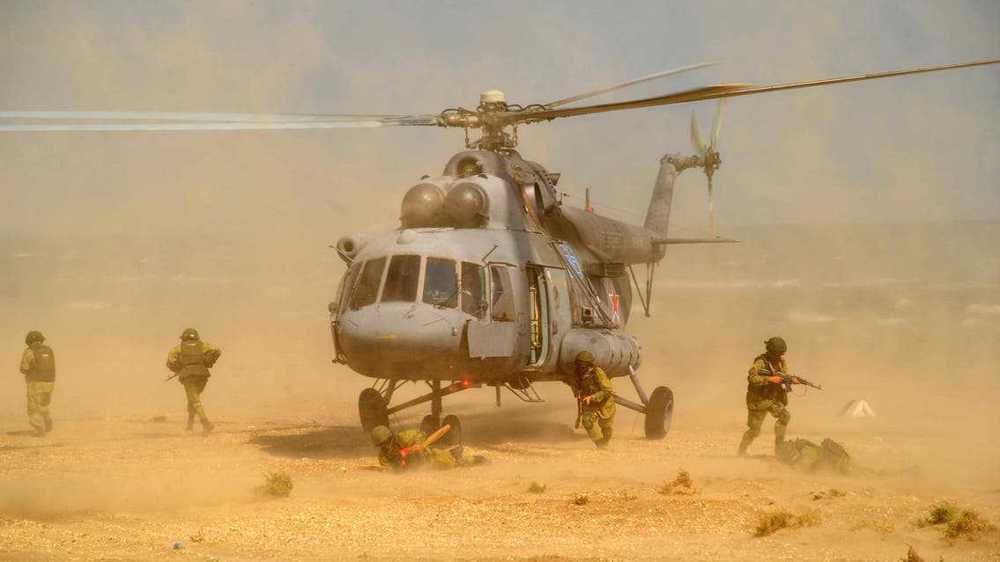
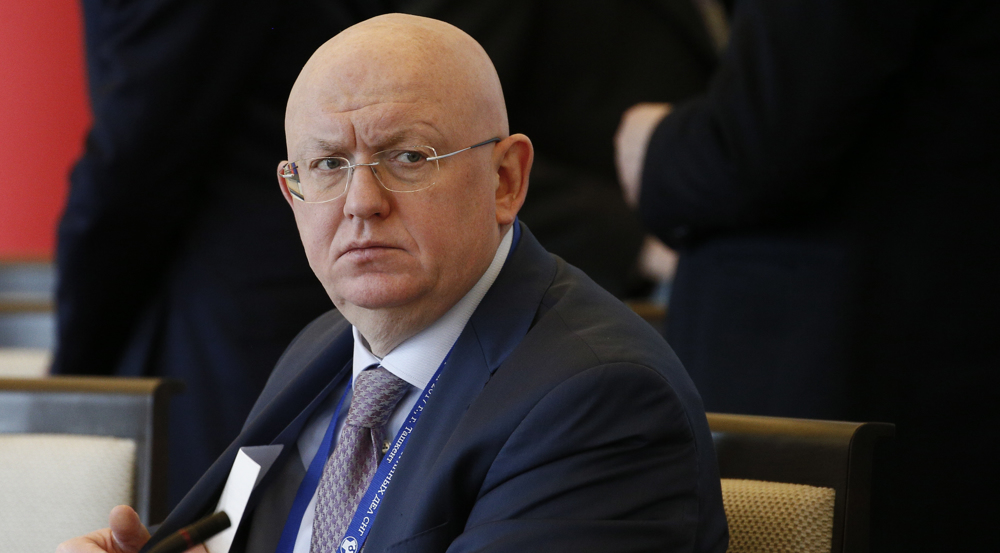
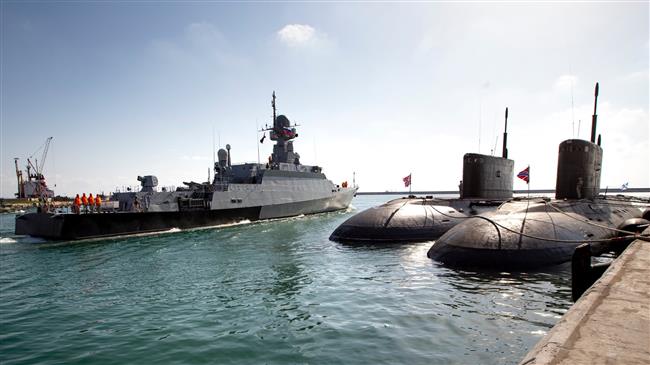
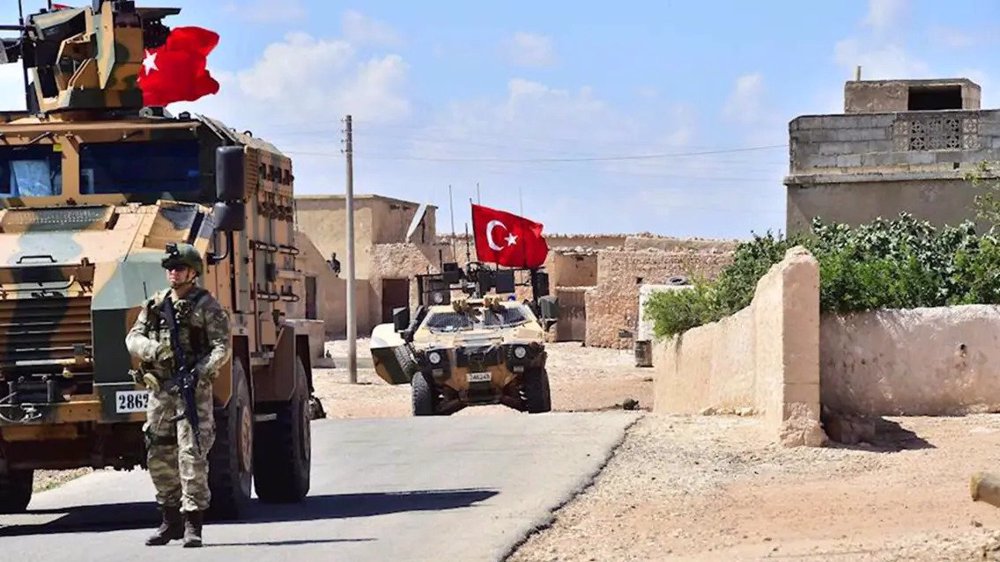
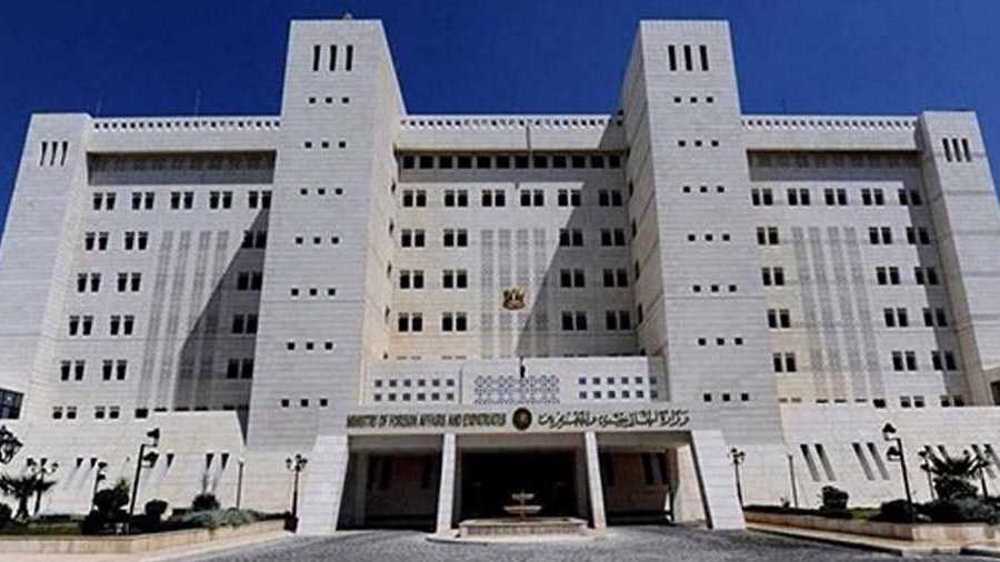
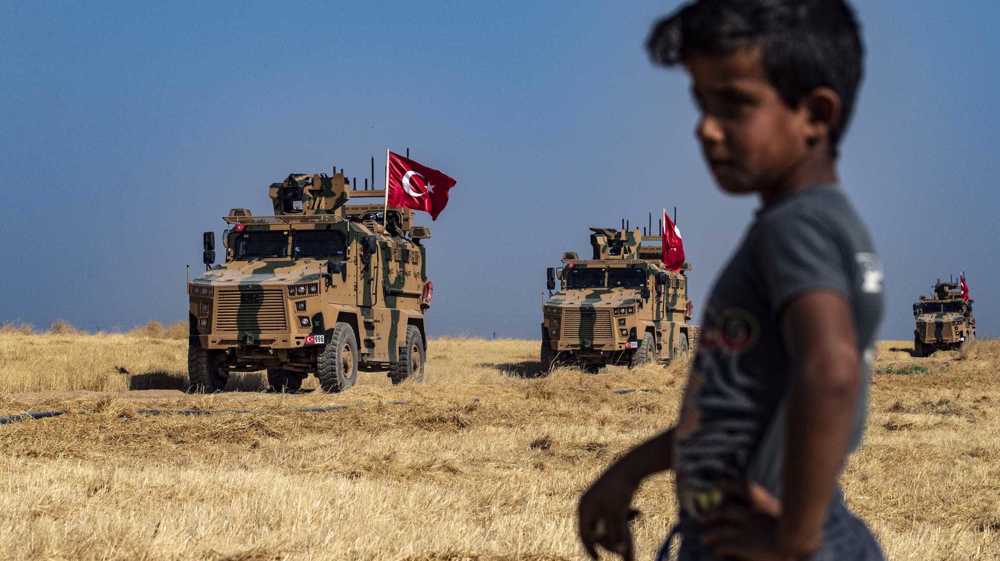
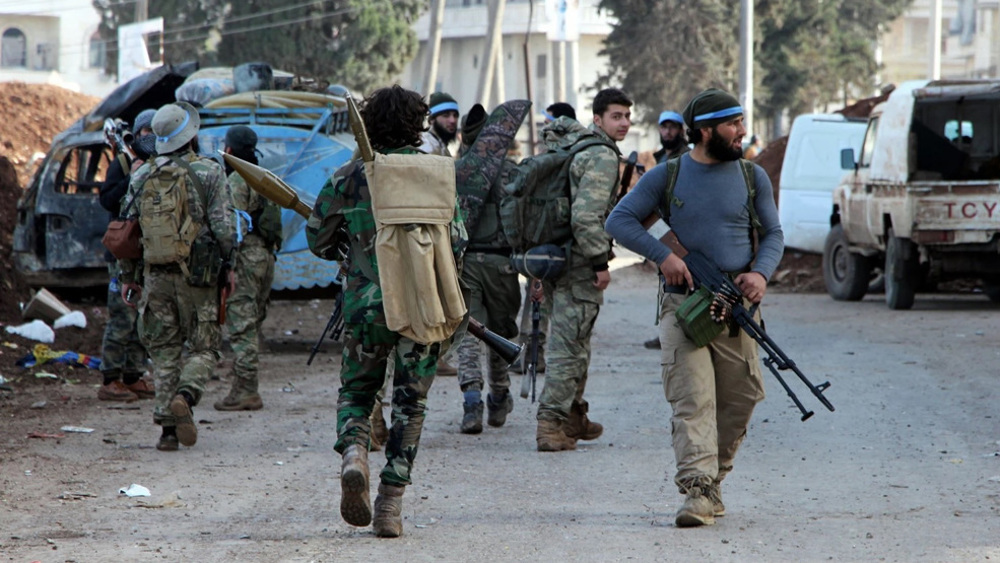
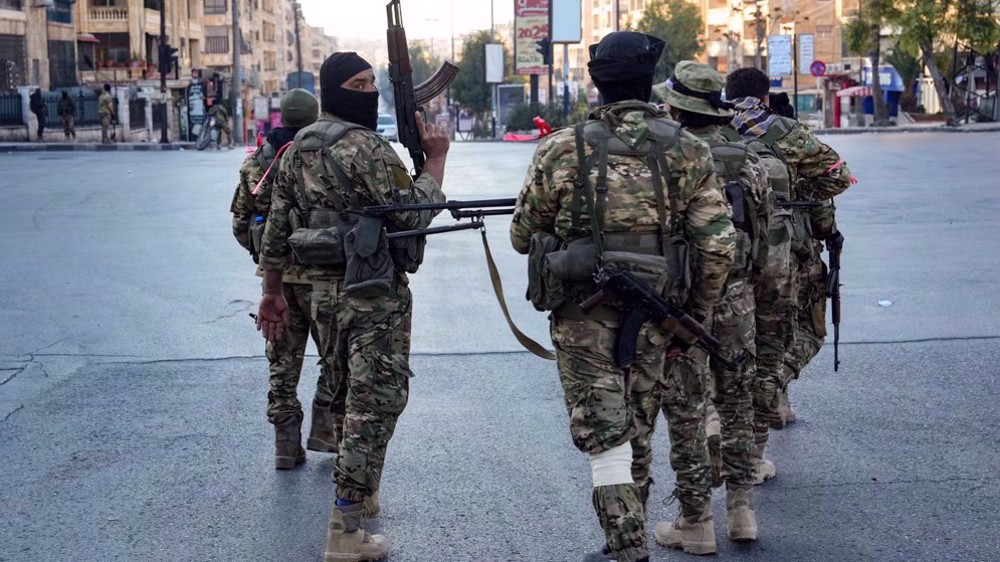
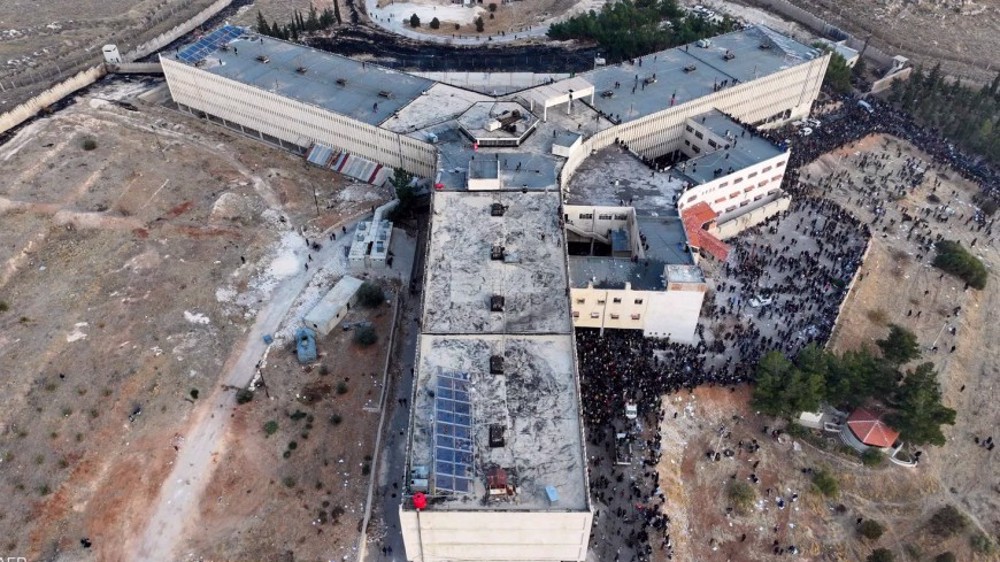



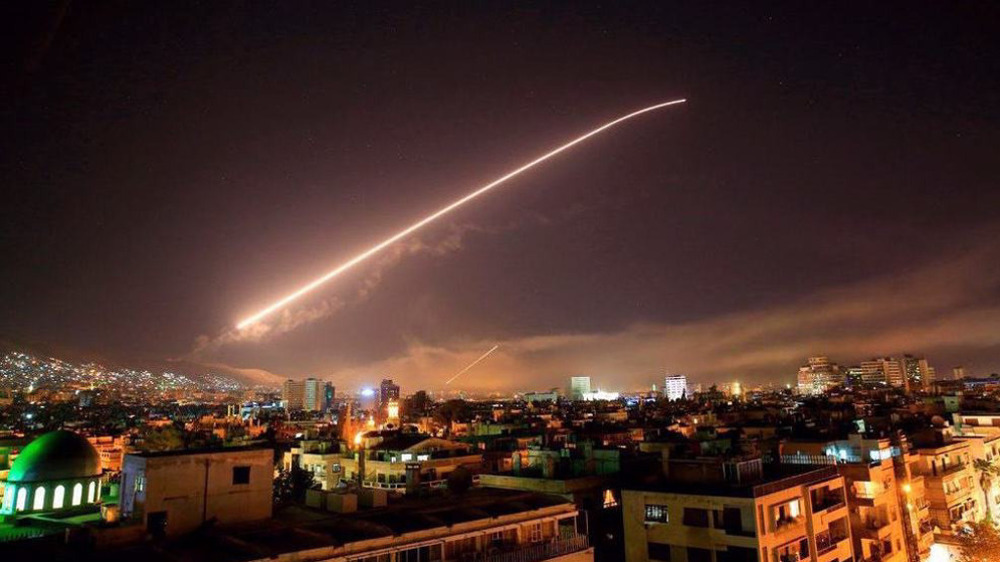
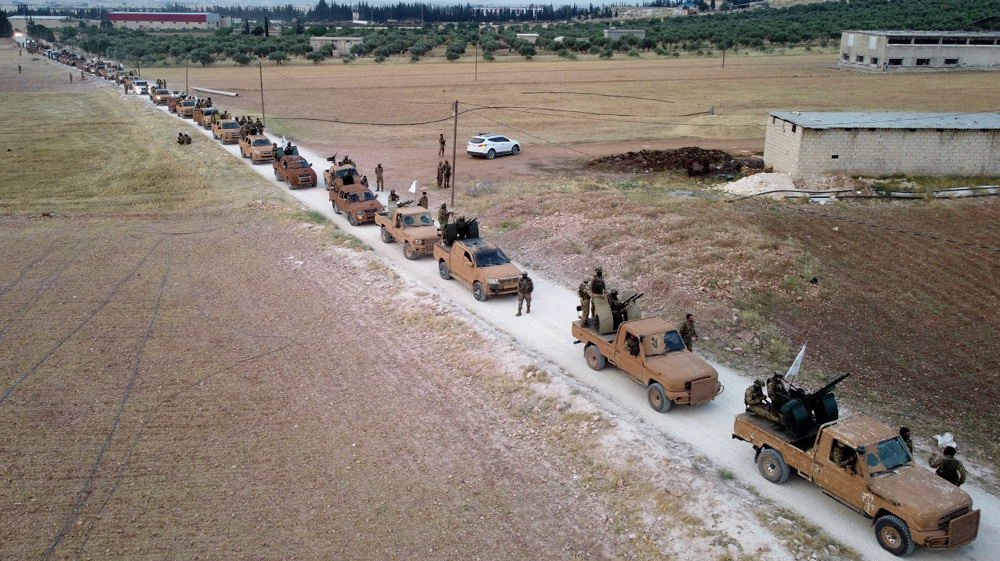
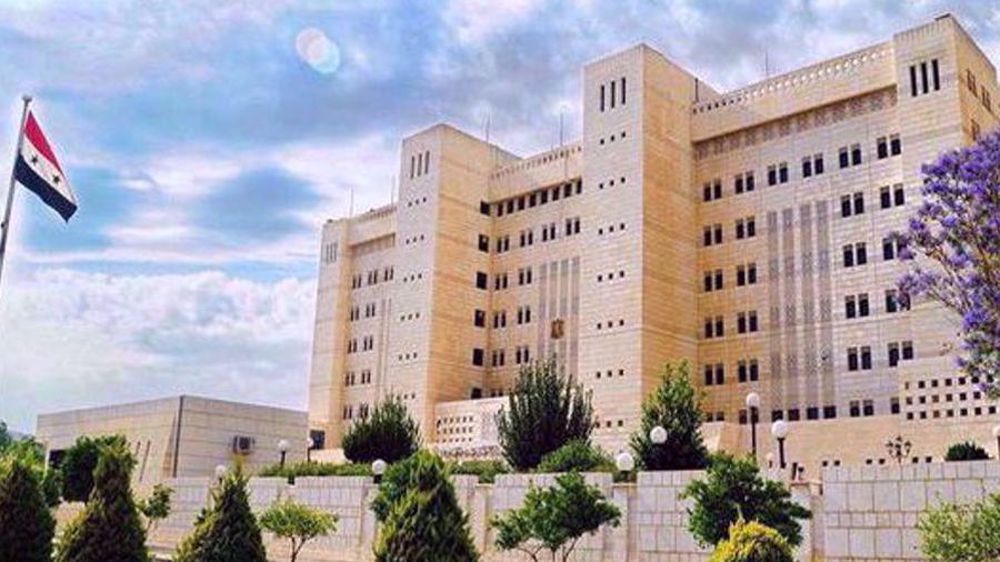
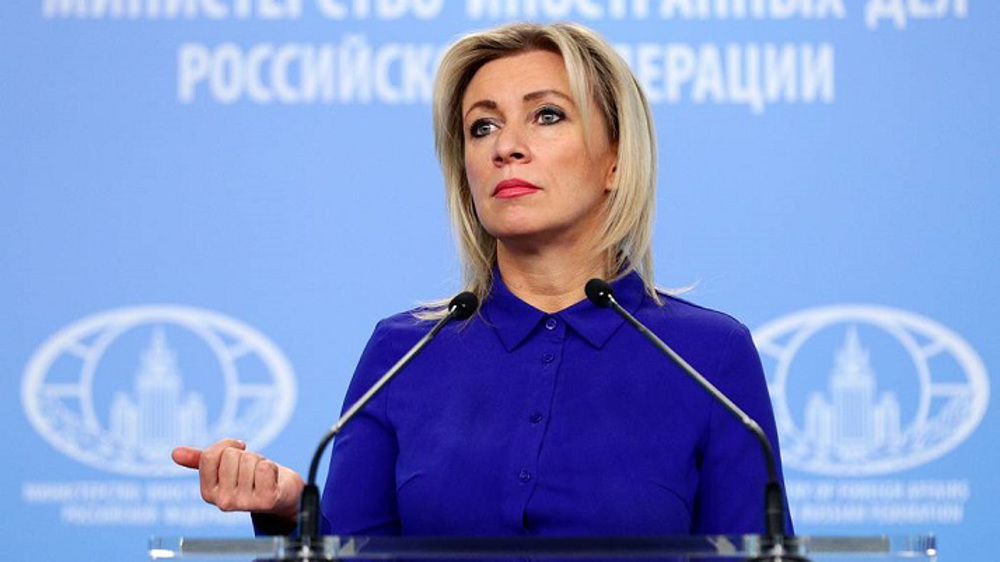
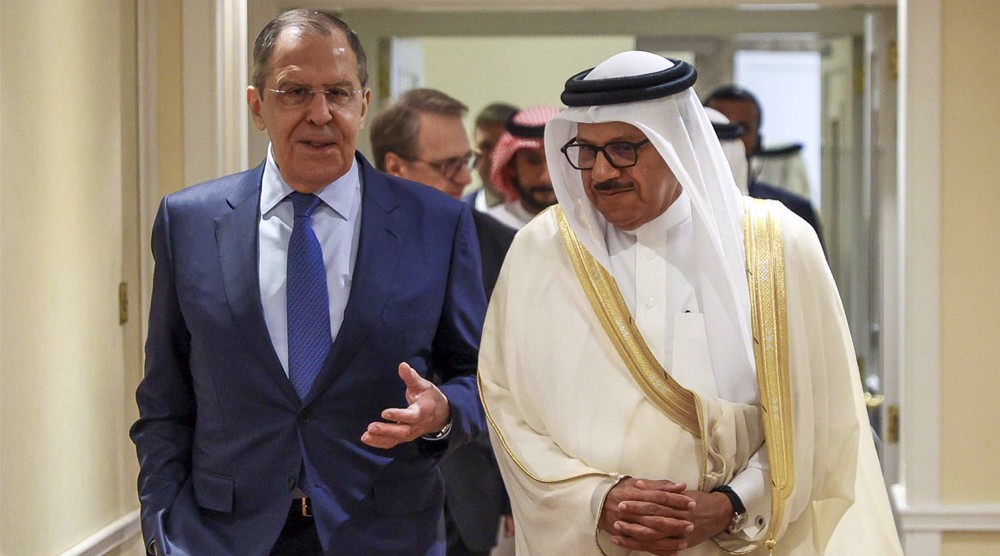
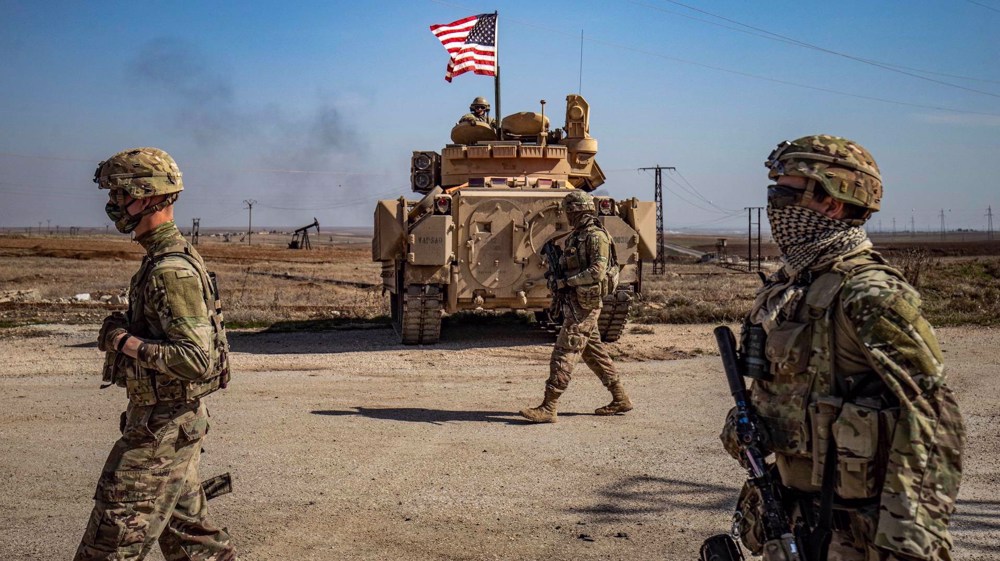
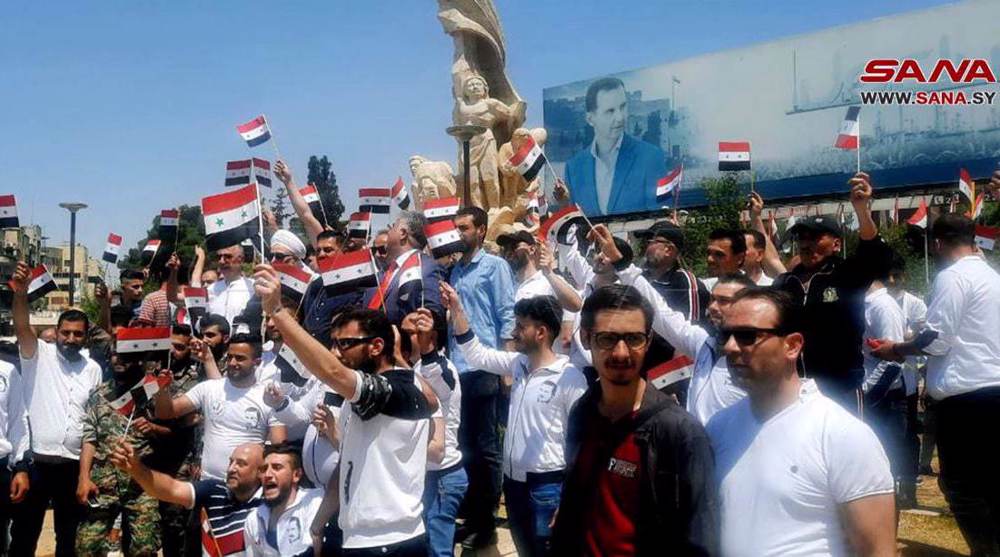

 This makes it easy to access the Press TV website
This makes it easy to access the Press TV website